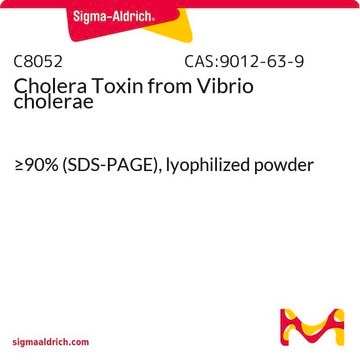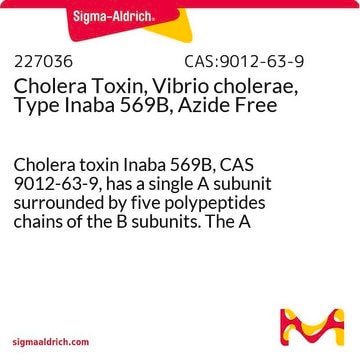CTX TNA2
98102213, rat brain, Neuronal (astrocyte)
Iniciar sesiónpara Ver la Fijación de precios por contrato y de la organización
About This Item
UNSPSC Code:
41106514
Productos recomendados
product name
CTX TNA2, 98102213
biological source
rat brain
growth mode
Adherent
karyotype
Not specified
morphology
Neuronal (astrocyte)
products
Alpha 2 macroglobulin
receptors
Not specified
technique(s)
cell culture | mammalian: suitable
shipped in
dry ice
storage temp.
−196°C
Cell Line Origin
Rat Astrocyte, Transfected
Cell Line Description
Established by transfecting cultures of primary astrocytes from brain frontal cortex tissue of 1 day old sprague-dawley rats with a DNA construct containing the oncogenic early region of SV40. Transcriptional control was effected using the human GFAP promoter (pGFA-SV-TE) and the murine phosphoglycerate kinase promoter (pPGK-neo). Cloning was achieved using G418. The cells are phenotypically similar to type 1 astrocytes. CTX TNA2 displays 20% positive staining for glial fibrillary acid protein (GFAP) and a β alanine inhibitable high affinity uptake mechanism for gamma amino butyric acid (GABA). α-2-macroglobulin production is similar to that found in primary astrocytes, but transferrin production is reduced. The cell line has been shown not to produce proenkephalin A, galactoceebroside or to express the 04 or A2B5 epitopes characteristic of type 2 astrocytes. Immunostaining has shown the SV40 T antigen to be present in over 95% of cells.
Application
Studies of the development and biochemistry of the central nervous system.
Culture Medium
DMEM + 2mM Glutamine + 1mM Sodium Pyruvate (NaP) + 10% Foetal Bovine Serum (FBS).
Subculture Routine
Split sub-confluent cultures (70-80%) 1:2 to 1:8 using 0.25% trypsin or trypsin/EDTA; 5% CO2; 37°C. Subculture before flasks become confluent or cells will detach in sheets reducing the effectiveness of trypsin
Other Notes
Additional freight & handling charges may be applicable for Asia-Pacific shipments. Please check with your local Customer Service representative for more information.
Certificados de análisis (COA)
Busque Certificados de análisis (COA) introduciendo el número de lote del producto. Los números de lote se encuentran en la etiqueta del producto después de las palabras «Lot» o «Batch»
¿Ya tiene este producto?
Encuentre la documentación para los productos que ha comprado recientemente en la Biblioteca de documentos.
Nuestro equipo de científicos tiene experiencia en todas las áreas de investigación: Ciencias de la vida, Ciencia de los materiales, Síntesis química, Cromatografía, Analítica y muchas otras.
Póngase en contacto con el Servicio técnico




